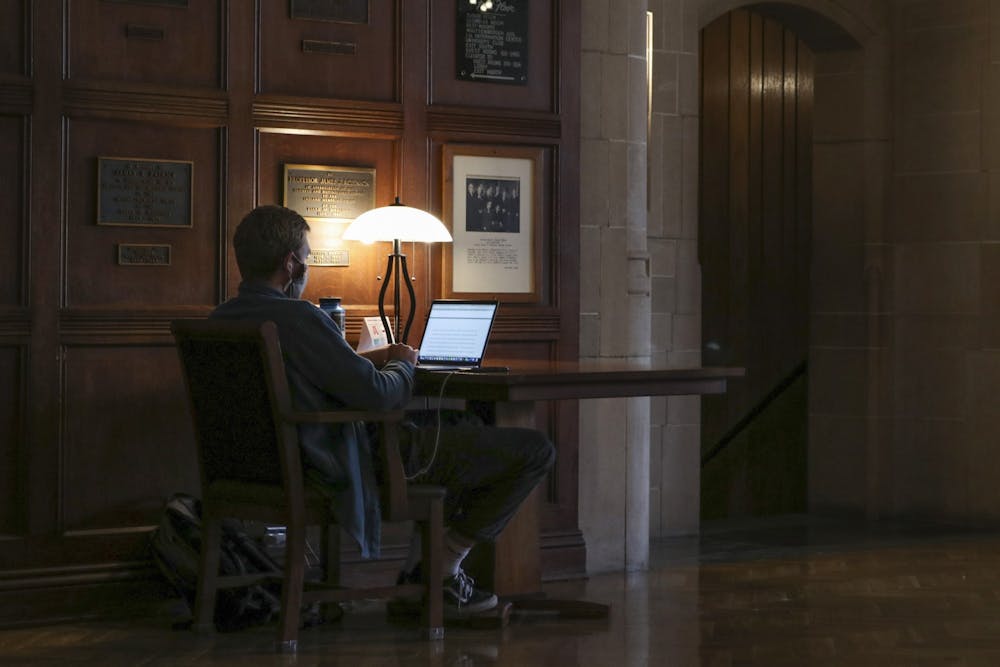As finals week approaches, many students will start to panic about their semester grades. This panic can often lead to studying for final exams for hours on end. While it might seem like more time spent studying will guarantee better results, this dangerous habit of overstudying will not only hinder exam performance but also damage your physical and mental health.
According to a Scholars article, common symptoms of overstudying include mental distractions that make it challenging to retain information, withdrawal from social activities, a lack of sleep or change in sleep patterns, headaches and digestive issues.
These symptoms undermine one’s ability to do well on the exams they are studying for, and those intense study sessions will result in feelings of disappointment and wasted time.
[Related: IU experts say daylight saving time may increase energy consumption, bring mental health problems]
Overstudying can also lead to worsened anxiety and depression, according to Student Anywhere. The need to perform well can be extremely overwhelming, and the fear of feeling inadequate can lead to people, especially college students, compensating through study guides and excessive notes. Trust me, I’ve been there. It can seem as though more studying has to be better, but it is actually quality over quantity that leads to the best results come exam day.
Now, I am not trying to say that people shouldn’t study. Studying is extremely important and helpful in order to perform well on exams. But I am saying that there are more productive means of studying.
Make sure to take breaks while studying. This will help prevent mental exhaustion and burnout. If your body is telling you that it needs a break, listen to it. Taking a break will help you refocus your mind and get back at it!
Also, do not wait until the day before the exam to start studying. Cramming the day before an exam — as opposed to studying in frequent intervals the week leading up to the exam — is only going to put further stress on you and is less effective in understanding the material.
[Related: OPINION: Even during finals season, romanticize the holidays]
Prioritize sleep! Pulling an all-nighter, the night before your exam is sure to do more harm than good. An article from Sleep Foundation said eight to 10 hours of sleep is ideal for peak physical, mental and school performance. If you don’t understand a concept the night before your exam, you are most likely not going to be able to fully learn it in time. It’s better to get enough sleep to make sure you’re well-rested and ready than to spend the night trying to learn new material and compromise your overall performance on the exam.
Finally, finding the study habits that work best for you is a process. When you get into that exam room, all you can do is answer every question to the best of your ability. After the exam, you will be able to gauge how well you did and change your study habits if needed.
Remember to be kind to yourself during exam season. Be sure that your study habits never interfere with eating, drinking, sleeping and relaxing regularly. Be prepared, not panicked.
Ravana Gumm (she/her) is a freshman studying journalism.






